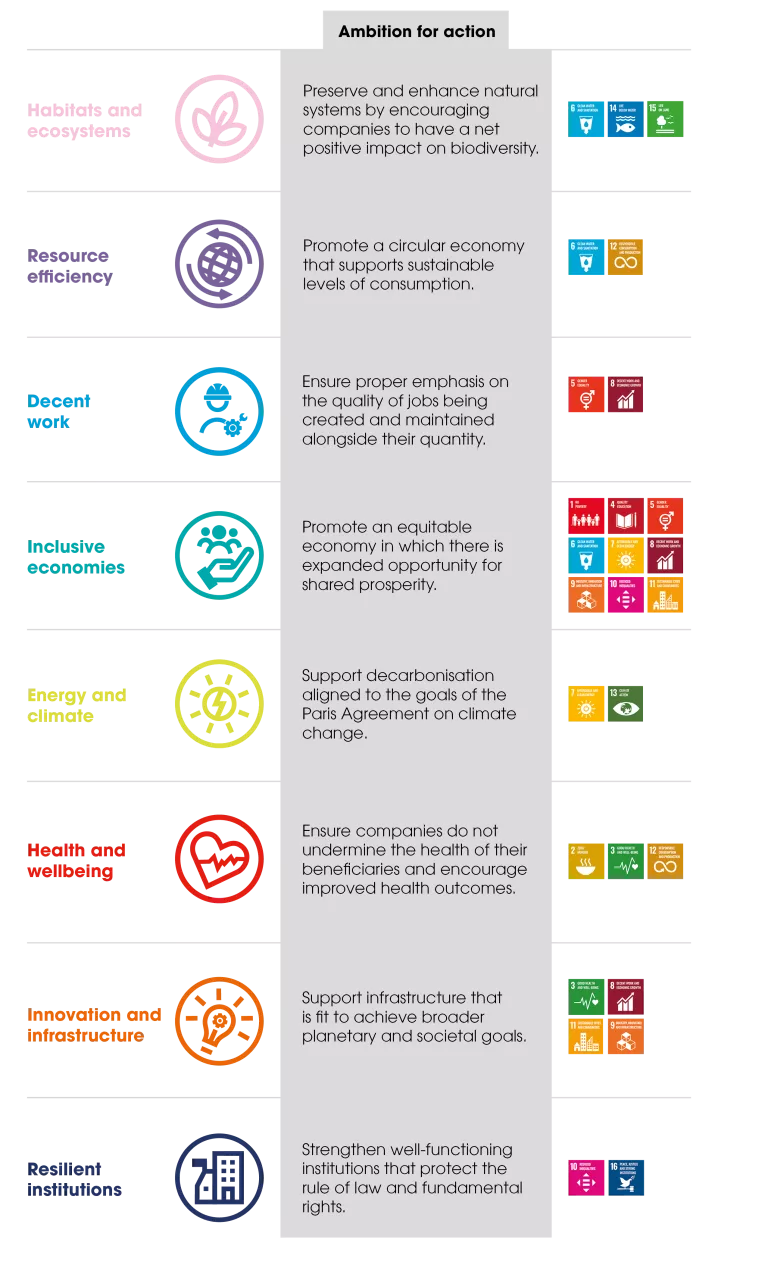What is SRI investing?

Socially responsible investing (SRI) means choosing companies based on social and environmental performance while still prioritising potential financial returns from a narrower range of investments.
SRI is generally viewed as building different social and environmental considerations into investment decisions. This can involve excluding certain companies and industries from portfolios or focusing on specific themes – such as combatting the climate crisis or discrimination in society.
In some industries, SRI can mean many different things. The energy sector is an example of this. While one approach may be to take an exclusionary view to the sector, other investors may invest in the hope of influencing company behaviour through engagement.
The roots of SRI investing and other moral considerations in investing date back to the mid-1980s, when the UK's first ethical unit trust was created. That fund launched by Friends Provident was nicknamed 'The Brazil Fund' in some circles on account of it being deemed a "nuts" proposition.
For many investors, ethics, social responsibility and financial returns go hand in hand as portfolio priorities.
Different socially responsible investment strategies
There's no one-size-fits-all approach to any kind of investing but that is especially true of SRI, where individual ethics and financial goals are intertwined. Building a resilient socially responsible investment portfolio requires a multi-pronged approach, including:
Negative screening
Positive screening
Best-in-class screening
Impact investing
Thematic investing
Shareholder activism

Divestment over displaced communities
The issue: Portfolios had included one of the world's leading experts in land reclamation, soil erosion control, flood control and remediation of contaminated land. The firm was announced as a partner in a high-profile construction project in Saudi Arabia, which has faced criticism for human rights abuses and the displacement of local tribes.
The outcome: Greenbank engaged with the firm to understand what due diligence it had undertaken about these issues. Although there was no evidence of any involvement in the alleged human rights abuses, we considered that its involvement constituted a social and financial risk. As a result, we reduced or divested holdings across client portfolios.
Divestment vote
The issue: A global oil and gas company was included in some Greenbank client portfolios as it was considered best in class in terms of progress towards decarbonisation and investment in renewable energy technology. However, strategic changes altered its receptiveness to shareholder engagement. This meant we no longer had faith in the organisation's ability to adapt its operations and align with global climate ambitions at a fast enough pace.
The outcome: Greenbank began the process of selling holdings in the company across client portfolios. We continue to monitor progress of the company and other oil and gas companies but will only reinvest if we determine they are committed to aligning with global goals on decarbonisation.
The tech sector and AI
The issue: Greenbank is a member of the Investor Alliance for Human Rights (IAHR) and forms part of a working group focused on human rights in the Information and Communications Technology (ICT) sector. Amid artificial intelligence's (AI) recent explosion into the consciousness of many sectors, Greenbank met with a global tech leader to discuss AI and assess its progress in improving algorithm governance and oversight, enhancing user policies and providing users with more options to manage and control personal data.
The outcome: The company in question has since published guidance on developing more inclusive and human-centric AI. It also now ensures that human rights impact assessments and panel reviews accompany all new AI technologies and is developing an annual Responsible AI Report which is currently awaiting investor feedback.
Advantages and drawbacks of SRI
Like any form of investing, socially and environmentally responsible investing comes with a set of pros and cons that may align with an investor's objectives or prompt them to rethink. It's also important to remember that with all investing, the value of investments can go down as well as up and you could get back less than your original investment.
"There are decades of financial expertise and a passion for sustainability right across the Greenbank team. If you're looking for an investment strategy that focuses on financial returns while trying to advance sustainability, you'll feel at home here."
Kate Elliot, head of ethical, sustainable and impact research at Greenbank
Speak to Greenbank about investment management
- Experienced investment managers: We were established in 2004 but our experience in working with clients' SRI considerations stretches back even further. We have a track record of providing investment management that factors in many considerations.
- There when you need us: A dedicated investment manager is only ever a phone call or email away, or you can communicate with them via the MyRathbones app.
- Award-winning investment managers: We're incredibly proud of our award-winning team that has been recognised at the Investment Week Sustainable Investment Awards and Investment Week Women in Investment Awards.
- Actively engaged in the sustainable world: We've partnered with a range of responsible organisations and have set ambitious targets to become a net zero emissions business by 2040. It's part of our engagement action plan and reflects our dedication to pushing for positive change.
To find out how we can help you, fill in our online enquiry form and a member of our team will be in touch:




